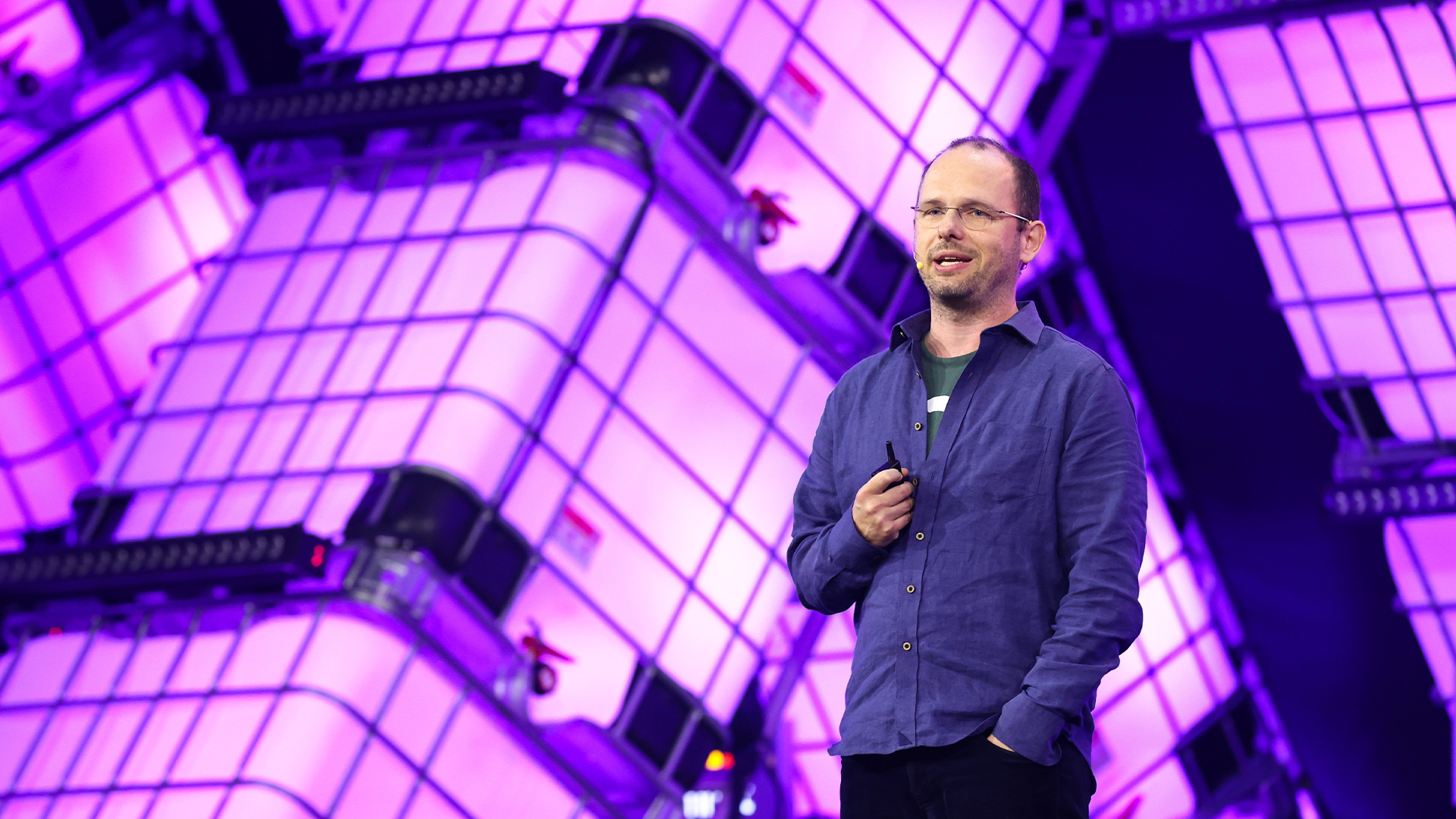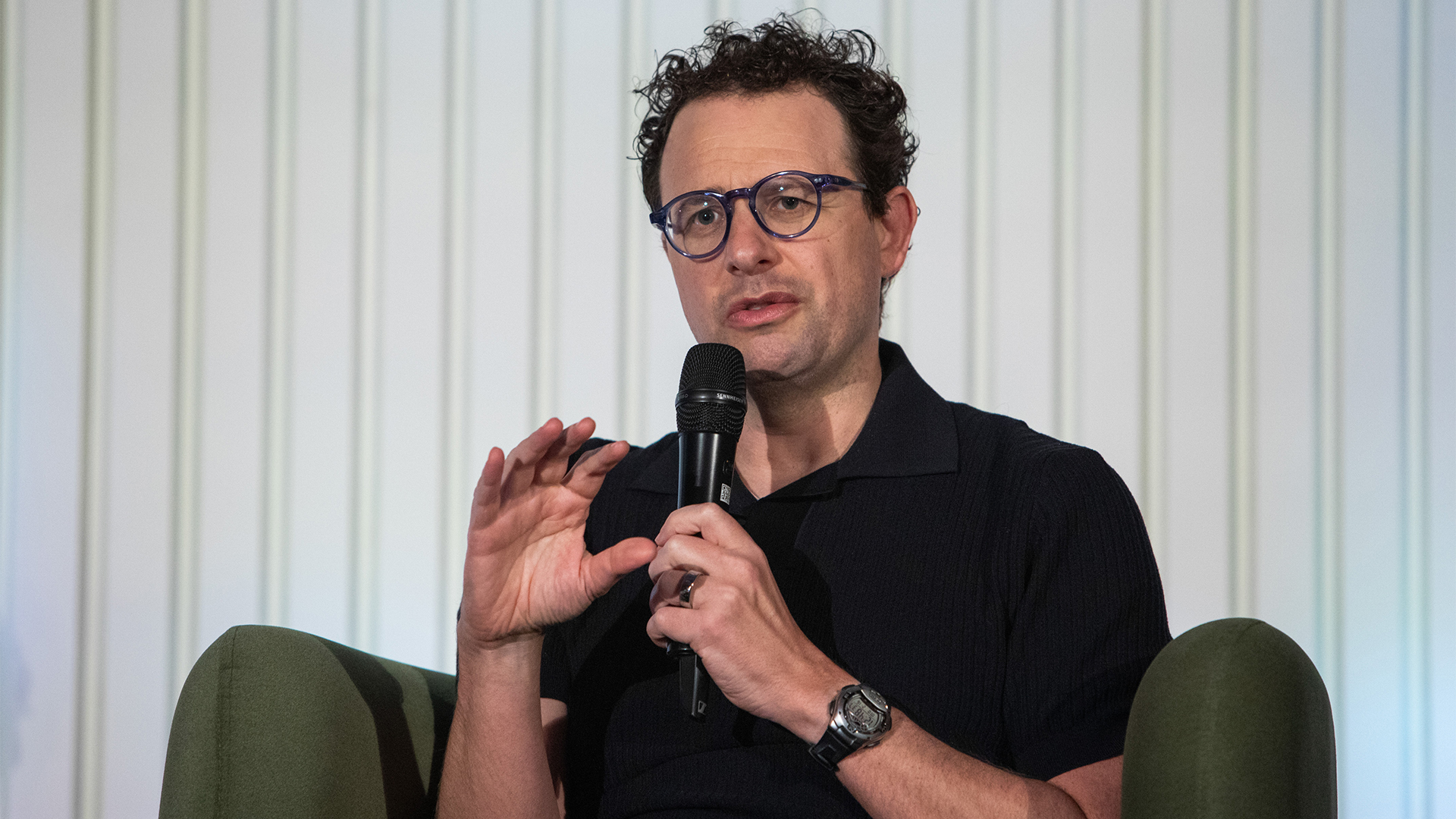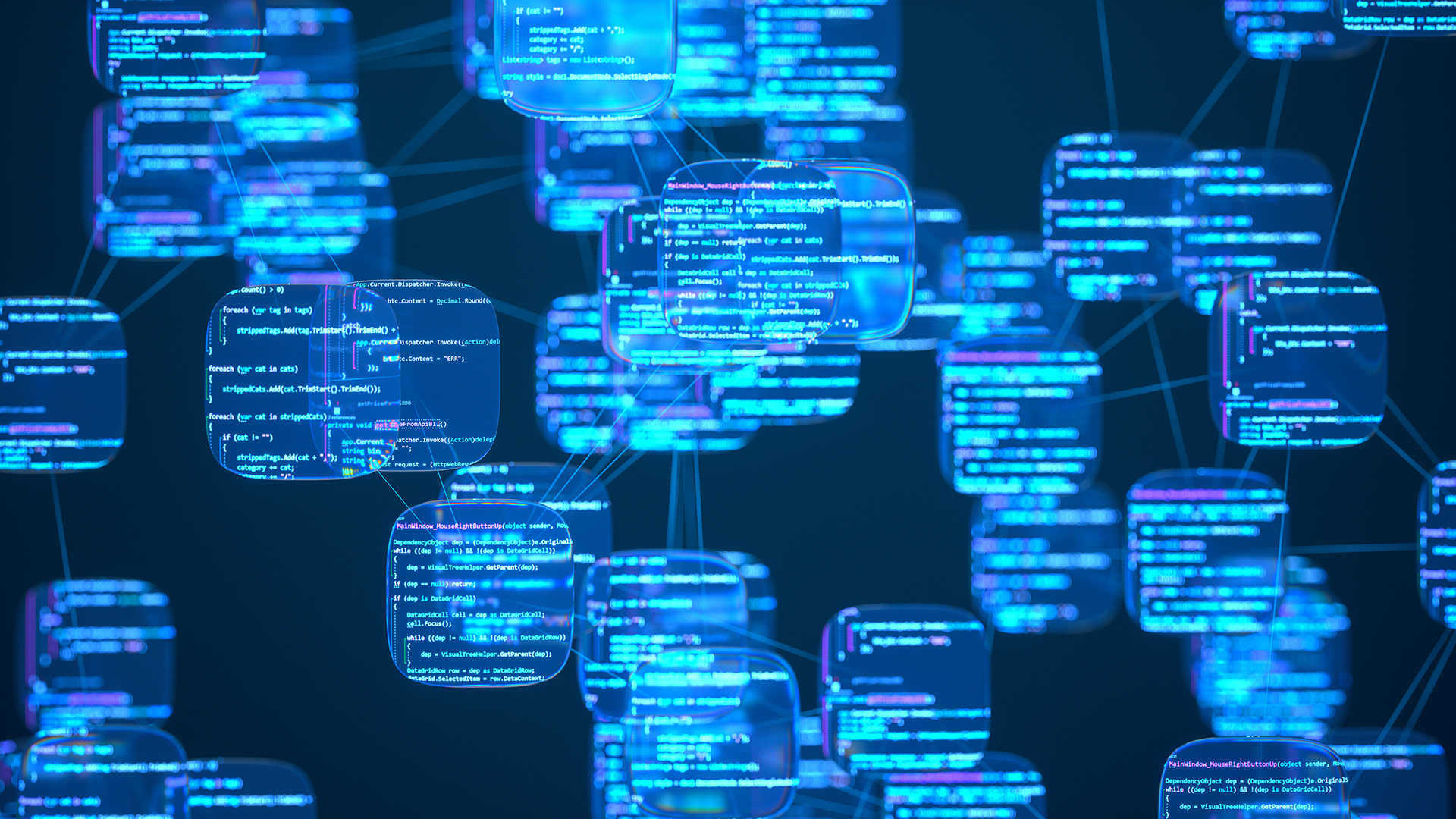GitHub CEO Thomas Dohmke thinks there’s still a place for junior developers in the age of AI
The GitHub chief exec appears upbeat on future prospects for entry-level developers


Sign up today and you will receive a free copy of our Future Focus 2025 report - the leading guidance on AI, cybersecurity and other IT challenges as per 700+ senior executives
You are now subscribed
Your newsletter sign-up was successful
While concerns are rising about the impact of generative AI on software developers, GitHub CEO Thomas Dohmke seems to have an optimistic outlook.
In a recent appearance on The Pragmatic Engineer podcast, Dohmke said that although AI tools are changing the face of the profession, claims that the technology will render junior developers obsolete are overblown.
Notably, junior developers play a crucial role in the natural hierarchy of development teams, Dohmke said, and bring with them new types of energy, ideas, and innovation.
“They come in with the latest learnings from colleges, diverse backgrounds, and a willingness to experiment,” he told host Gergely Orosz.
“The folks that are younger in career bring a new perspective to the team and say, ‘why don’t we try this?’ or ‘I want to incubate this idea’,” Dohmke added.
Simply put, junior devs help keep things fresh, keep the creative juices flowing, and support the more established, senior members of the team.
Notably, many developers now entering the workforce are AI native, so to speak - they’ve been using AI at college and university, or even earlier on in their academic journey.
Sign up today and you will receive a free copy of our Future Focus 2025 report - the leading guidance on AI, cybersecurity and other IT challenges as per 700+ senior executives
This means they bring new perspectives and skills such as prompt engineering to the table. Crucially, they also boast an innate understanding of what consumers expect from applications and services.
GitHub putting its money where its mouth is on junior devs
During the interview, Dohmke emphasized that the company still values junior developers and runs an internship program for those hoping to enter the workforce.
This not only provides valuable experiences for aspiring developers, but also enables the company to embed younger generations within development teams to create a more diverse array of backgrounds and skillsets.
“We’re really excited about working with young people,” he said, adding that it had recently begun its summer internship program.
“We have three groups that start on different days and go through the internship,” Dohmke added.
“So those are the very early in career folks that still go to college or university. These interns get a full-time offer at the end of the internship, or maybe they come back for a second year.
“It’s lovely to see those folks that bring fresh ideas, a great amount of energy, and the latest learnings from college and university.”
Agentic AI is a threat, but not disastrous
Concerns over job losses as a result of AI have been simmering away since early 2023, but with the advent of agentic AI the issue has reached boiling point.
AI agents are capable of carrying out tasks on behalf of the work, rather than acting in a supporting role like your typical AI assistants. This marks a step change in how the technology can be used by enterprises - it’s fully autonomous.
A host of leading industry execs haven’t exactly calmed fears on this front, either.
Salesforce CEO Marc Benioff, for example, has waxed lyrical about the potential of AI agents in recent months. He even went so far as to suggest the company might slow down hiring of engineers as a result of its own successes integrating the technology internally.
Dohmke acknowledged that there are genuine concerns among developers about the future of agentic AI, but once again appears confident that it won’t result in mass job losses or a complete overhaul of the profession.

Ultimately, these tools still require human oversight and do have limitations.
“I don’t like the term ‘autonomous’, because I think autonomous, at least in my understanding, means the thing figures out itself what it should work on,” he explained. “That’s not how these things work. They have a level of autonomy, then you assign a task to them.”
Dohmke noted that this autonomy is restricted in a range of ways, such as by the model context protocol (MCP) that it’s configured through. Similarly, developers will also have control over which repositories agents are given access to.
It’s this control and oversight that limits their ability to be fully ‘autonomous’, he noted.
“As an engineer, as a human engineer, I can look beyond the one repository boundary and see what has been happening in other repositories, while the agent needs to get permission to do that right?”
“So we are definitely far away from full self-driving, if you take cars as a metaphor here, but we are certainly getting into more driver assistance systems. And as developers, we have always automated whatever we can automate, right?”
It’s still a bleak market for entry-level workers
Dohmke’s comments on junior developers comes amid a challenging period for entry-level workers across a range of industries.
Reports in recent weeks have warned that younger generations entering the workforce face an increasingly strained labor market as a result of AI adoption.
All told, the influx of AI tools and the push toward more automated operations at enterprises means job openings are decreasing.
A study from SignalFire, for example, revealed a marked reduction in tech companies hiring recent college graduates across 2024. While the report noted that macroeconomic conditions are a key factor in sluggish hiring rates, growing AI adoption rates are also contributing to the trend.
The issue has even prompted stark warnings from leading industry figures, including Anthropic CEO Dario Amodei, who suggested that around half of white-collar entry-level jobs could be wiped out by the technology in the coming years.
In an interview with Axios, Amodei said the industry should be more up-front about the technology’s potential threat to jobs.
“We, as the producers of this technology, have a duty and an obligation to be honest about what is coming,” he said. “I don’t think this is on people’s radar.”
MORE FROM ITPRO
- AI coding tools are finally delivering results for enterprises
- Microsoft CEO Satya Nadella joins Google’s Sundar Pichai in revealing the scale of AI-generated code at the tech giants
- Want developers to build secure software? You need to ditch these two programming languages

Ross Kelly is ITPro's News & Analysis Editor, responsible for leading the brand's news output and in-depth reporting on the latest stories from across the business technology landscape. Ross was previously a Staff Writer, during which time he developed a keen interest in cyber security, business leadership, and emerging technologies.
He graduated from Edinburgh Napier University in 2016 with a BA (Hons) in Journalism, and joined ITPro in 2022 after four years working in technology conference research.
For news pitches, you can contact Ross at ross.kelly@futurenet.com, or on Twitter and LinkedIn.
-
 ITPro Best of Show NAB 2026 awards now open for entries
ITPro Best of Show NAB 2026 awards now open for entriesThe awards are a fantastic opportunity for companies to stand out at one of the industry's most attended shows
-
 Mistral CEO Arthur Mensch thinks 50% of SaaS solutions could be supplanted by AI
Mistral CEO Arthur Mensch thinks 50% of SaaS solutions could be supplanted by AINews Mensch’s comments come amidst rising concerns about the impact of AI on traditional software
-
 ‘AI is making us able to develop software at the speed of light’: Mistral CEO Arthur Mensch thinks 50% of SaaS solutions could be supplanted by AI
‘AI is making us able to develop software at the speed of light’: Mistral CEO Arthur Mensch thinks 50% of SaaS solutions could be supplanted by AINews Mensch’s comments come amidst rising concerns about the impact of AI on traditional software
-
 Claude Code creator Boris Cherny says software engineers are 'more important than ever’ as AI transforms the profession – but Anthropic CEO Dario Amodei still thinks full automation is coming
Claude Code creator Boris Cherny says software engineers are 'more important than ever’ as AI transforms the profession – but Anthropic CEO Dario Amodei still thinks full automation is comingNews There’s still plenty of room for software engineers in the age of AI, at least for now
-
 Anthropic Labs chief Mike Krieger claims Claude is essentially writing itself – and it validates a bold prediction by CEO Dario Amodei
Anthropic Labs chief Mike Krieger claims Claude is essentially writing itself – and it validates a bold prediction by CEO Dario AmodeiNews Internal teams at Anthropic are supercharging production and shoring up code security with Claude, claims executive
-
 AI-generated code is fast becoming the biggest enterprise security risk as teams struggle with the ‘illusion of correctness’
AI-generated code is fast becoming the biggest enterprise security risk as teams struggle with the ‘illusion of correctness’News Security teams are scrambling to catch AI-generated flaws that appear correct before disaster strikes
-
 ‘Not a shortcut to competence’: Anthropic researchers say AI tools are improving developer productivity – but the technology could ‘inhibit skills formation’
‘Not a shortcut to competence’: Anthropic researchers say AI tools are improving developer productivity – but the technology could ‘inhibit skills formation’News A research paper from Anthropic suggests we need to be careful deploying AI to avoid losing critical skills
-
 A torrent of AI slop submissions forced an open source project to scrap its bug bounty program – maintainer claims they’re removing the “incentive for people to submit crap”
A torrent of AI slop submissions forced an open source project to scrap its bug bounty program – maintainer claims they’re removing the “incentive for people to submit crap”News Curl isn’t the only open source project inundated with AI slop submissions
-
 ‘This is a platform shift’: Jensen Huang says the traditional computing stack will never look the same because of AI – ChatGPT and Claude will forge a new generation of applications
‘This is a platform shift’: Jensen Huang says the traditional computing stack will never look the same because of AI – ChatGPT and Claude will forge a new generation of applicationsNews The Nvidia chief says new applications will be built “on top of ChatGPT” as the technology redefines software
-
 So much for ‘trust but verify’: Nearly half of software developers don’t check AI-generated code – and 38% say it's because it takes longer than reviewing code produced by colleagues
So much for ‘trust but verify’: Nearly half of software developers don’t check AI-generated code – and 38% say it's because it takes longer than reviewing code produced by colleaguesNews A concerning number of developers are failing to check AI-generated code, exposing enterprises to huge security threats